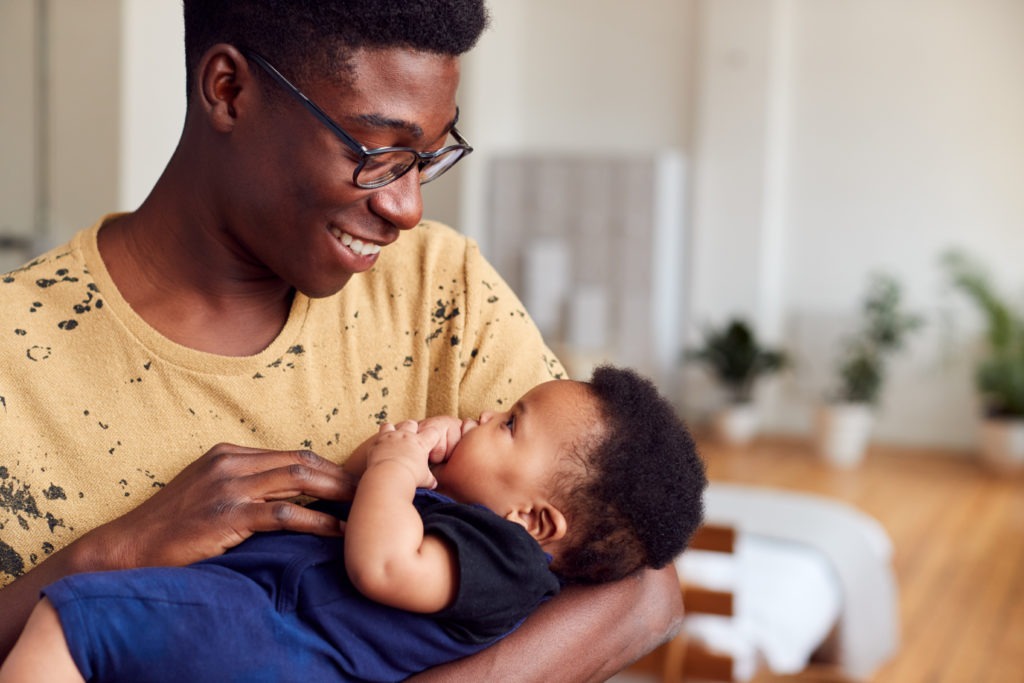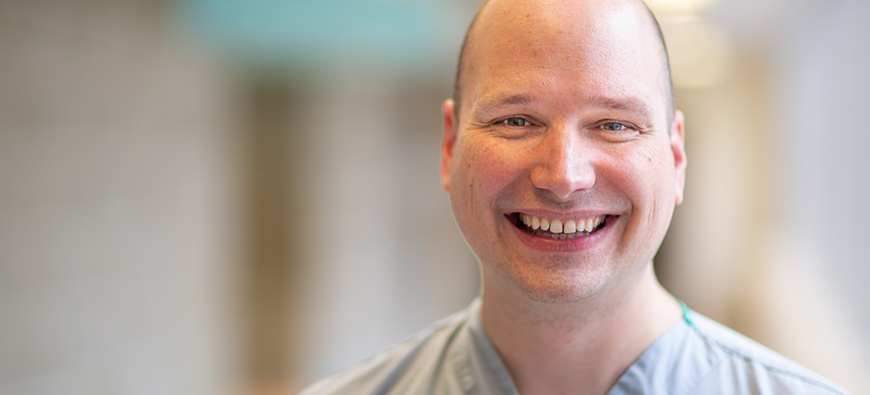
Introducing newborns to family during COVID-19
If your due date is approaching, you may be wondering how to safely introduce your newborn to family and friends during the pandemic. McMaster Children’s Hospital pediatric infectious diseases specialist, Dr. Sarah Khan, shares some advice for those expecting.
Take the ordinary precautions
Continue taking precautions you would otherwise take during COVID-19: Wash your hands before handling the baby, avoid large gatherings, and don’t allow sick visitors.
Gathering
During the first few months of life, children are vulnerable to infections in general. Dr. Khan advises to reduce visitors to those who are part of the child’s circle of care — such as immediate family — especially in the first month.

Dr. Sarah Khan, pediatric infectious diseases specialist, McMaster Children’s Hospital
“For some people, the circle of care would include grandparents and aunts or uncles. Who you allow is a personal decision,” she says.
Dr. Khan doesn’t have different recommendations for premature babies or those with complex medical needs. Families should feel comfortable with their decisions and take their doctor’s advice in special circumstances.
Meet and greet alternatives
Physical distancing is one of the most important ways to reduce the spread of COVID-19. As an alternative to in-person meet and greets, try a virtual option. “Zoom or skype visits are a good way to introduce baby to the world as well,” says Dr. Khan.
Otherwise, outdoor visits, weather permitting, are a much safer alternative to indoor spaces to control the spread of the virus.
Masking
Wearing a mask can reduce the spread of COVID-19. But make sure the mask doesn’t touch the baby when cuddling.
“The mask should ideally be a clean one,” says Dr. Khan. “Not the one you wore to the grocery store and left in your car.”
Quarantining
“Depending on what the grandparents’ exposures are like, then it might be a good idea to reduce their community activities in the weeks leading up to meeting the baby,” says Dr. Khan, although she doesn’t think people need to put their lives completely on hold and not get groceries for two weeks leading up to the birth. “It’s just about making smart decisions like not attending gatherings or extending your bubble.”
Testing
If you don’t have symptoms, don’t get tested, says Dr. Khan. If someone is symptomatic or had a known COVID-19 exposure, then getting tested makes sense. However, a test is a snapshot in time.
“If you get tested now, it takes a few days to get the results back,” says Dr. Khan. “In that time, you could have acquired COVID-19 and have a false reassurance of a negative test from a few days prior.”
If visitors have any kind of illness, it’s not a good idea to visit, so having a negative COVID-19 test is reassuring for your own health, but it’s not necessarily a go-ahead to meet the new baby in the family.
Support network
“Healthy newborn development requires a healthy amount of stimulation and healthy parents,” says Dr. Khan.
Parents also need social stimulation. The post-partum period can be overwhelming and having a good support system and people you can turn to is key.
“Right now it probably can’t be your whole village, but everyone needs a few people who can step up to help out if needed post-partum,” she says. “So if exhausted new parents need a break and extended family is there to help, that needs to be considered when making these decisions,” says Dr. Khan.
Make safe, smart choices
“COVID-19 is here to stay and so we all need to learn to live with it. Although we can’t keep our babies in bubbles forever, we can make smart and safe decisions that we are comfortable with,” she says.
Making smart choices like wearing a mask in public, washing your hands frequently, not touching your face when out and about, physically distancing whenever possible, and not extending your bubble more than necessary are all steps to help keep you and your growing family safe.

